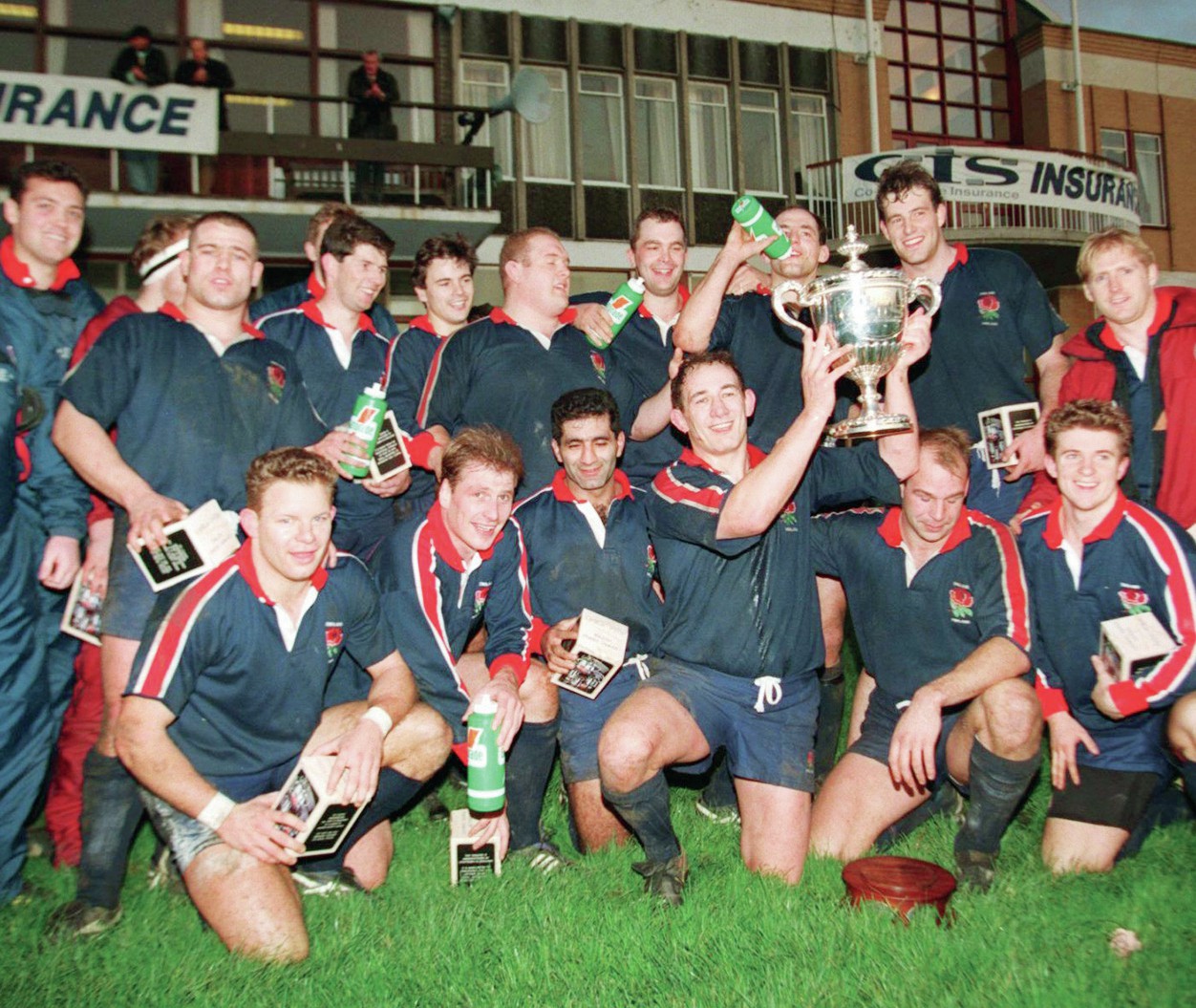One old competition which has had its day

Younger readers may be surprised to learn that back in the days when dinosaurs were roaming the corridors of Twickenham – we're talking mid- 1990s here – there was a passion-killer of a competition called The Divisional Championship.
They will be even more startled to know that there are rugby folk who, even now, yearn for its resurrection, in the way some people crave the return of Tsarist Russia, or chimney sweeps, or public flogging.
A brief tutorial, then. There were four divisions – London, the Midlands, the North, the South and South-West – and they played each other once, over three successive weekends. In the eyes of its supporters, the tournament was something of a “missing link” – abridge between club rugby on the one hand and international activity on the other. To the rest of us, it was a carbuncle on the backside of the English game.
Like most things in the sport as it inched, then sprinted, towards professionalism, debate over the divisions went from rugby football to political football in the time it took Ellis Genge to score a try on his home-town return at Ashton Gate. The anti-pro club brigade – and there were plenty of them, many in influential positions – wanted central contracts for a regional elite and double sod-all for everyone else; the top-flight teams were prepared to man the barricades in opposition.
Why are we talking about this now, a quarter of a century down the road? Because of the state of Worcester and Wasps and every other Premiership club without a receptacle in which to micturate. If domestic league rugby can't balance its books, the old-stagers argue, let's make an about-turn and spend what money there is on potential Test contenders, chosen, channelled and controlled by the governing body.
It won't happen, of course: the Premiership clubs and those who run them have too much skin in the game to let that game slip through their fingers. As for the paying public, why would they want to see their premium club tournament – the market leader in competitiveness, along with the Top 14 in France – scaled down in favour of a divisional confection? It's not as if regionalisation has worked any kind of magic in Wales, unless we've missed something.
Those of us with first-hand experience of Thatcherism in all its warm-hearted generosity are old enough to recall some momentous divisional contests against the All Blacks or the Wallabies (although not, thanks to their well-earned ostracism, the Springboks). When the North beat a New Zealand side captained by the great Graham Mourie at Otley, the whole of sport sat up and took notice.
The intensity of the South-West's meeting with Sean Fitzpatrick's silver-ferned vintage at Redruth in 1993 was off the scale and then some. What we don't recollect with any clarity – or, in most instances, remember at all – are the matches played in the Divisional Championship. Your correspondent has ransacked his memory and come up with two snapshots from the South-West album, both of them comic rather than dramatic.
The first? Jon Webb, the Bath fullback, being booed by the crowd at Gloucester as he lined up his first shot at goal, even though the Kingsholm crowd were meant to be on his side. That's the Shedheads for you.
And the second? Stuart Barnes gifting an interception try to the Midlands at Welford Road by chucking a long cut-out pass in his own 22, having been specifically ordered not to do any such thing by his coach, Stan Liptrot. “So Stan was right after all,” we told the master outside-half in the bar afterwards, aware that he considered Liptrot to be a long way short of visionary. Unusually for Barnes, there was no response. Not even a “go forth and multiply”.
By way of comparison, the mind's eye is full of images of the club rugby played at the time: the cup finals, the scraps for league supremacy, the horribly fraught but wonderfully compelling dog fights at the foot of the table. Why? Because club rugby mattered to everyone involved – most importantly, to the supporters – in a way divisional rugby could not hope to emulate. The divisions were about international selection; the clubs were, and are, about local connection. Big difference.
What would a resumption of the DC look like in this day and age? Like something from anther epoch – the rugby equivalent of a woolly mammoth. Who would they play against, apart from each other? The Irish provinces? The Welsh regions? The Scottish franchises? Bang goes your European Champions Cup, for starters. Pro-divisionalists point to Super Rugby: “We could have something like that, if only we were brave enough to take on the Premiership financiers.” But the New Zealanders and the Australians discovered during the pandemic that such domestic tournaments were about as interesting as polenta once the novelty wore off, and quickly went back to playing each other. Moreover, they would welcome the South African teams back into the fold in a heartbeat.
Let's face it: the Divisional Championship was a tournament of its time, and that time wasn't very good. Best to let it in rest in peace – in an unmarked grave, preferably.